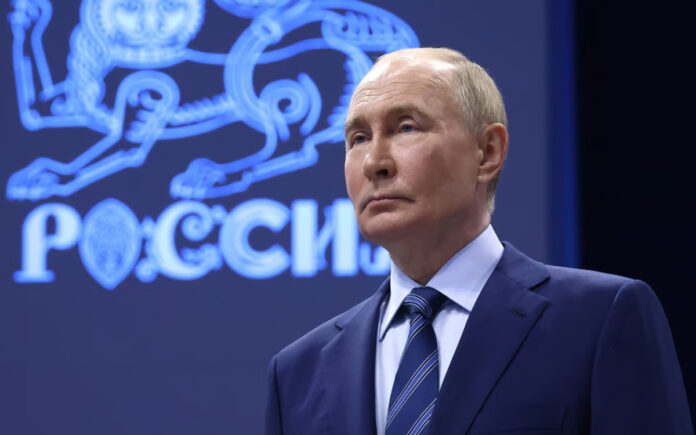Berlin: As Vladimir Putin deals with the unexpected Ukrainian incursion into Russia’s Kursk region, another potential geopolitical gain is emerging. The shifting political landscape in Germany, particularly in its eastern states, offers Putin a strategic opportunity to extend his influence in Europe. The upcoming regional elections could provide Moscow with a significant victory, reshaping power dynamics and alliances across the continent.
Political Earthquake on the Horizon
Upcoming regional elections in eastern Germany have the potential to create a political earthquake with far-reaching implications, according to Digi24.
In Brandenburg, Saxony, and Thuringia, pro-Russian parties are poised for significant gains in legislative assemblies. Recent polls suggest that the far-right Alternative for Germany (AfD) party, known for its pro-Russian stance, is likely to lead in all three states.
Simultaneously, the newly formed left-wing Alliance Sahra Wagenknecht (BSW) is also gaining traction, raising concerns about the potential re-establishment of strong ties between Moscow and former East Germany, a region historically influenced by the Soviet Union during the Cold War.
Also Read | India Gears Up to Commission Third Nuclear Submarine Amid China Border Tensions
A Personal Triumph for Putin
A decisive victory for these extremist and populist parties would not only underscore the failure of moderate politicians to bridge East and West Germany but also weaken the country’s already fragile tripartite coalition government.
Such an outcome would be a personal triumph for Putin, who has long held an interest in Germany dating back to his KGB service in Dresden during the 1980s.
Also Read | Russia Withdraws Troops from Burkina Faso to Bolster Efforts in Ukraine
Polls suggest that Moscow-friendly parties could secure at least 50% of the vote in these elections, with the AfD potentially capturing around 30% in Thuringia. This surge in support for extremist parties highlights the deep-seated frustration among East Germans who feel overlooked by the country’s political elite.
The AfD’s potential victory could send shockwaves through Europe, complicating efforts to maintain a united front against Russian aggression in Ukraine.



